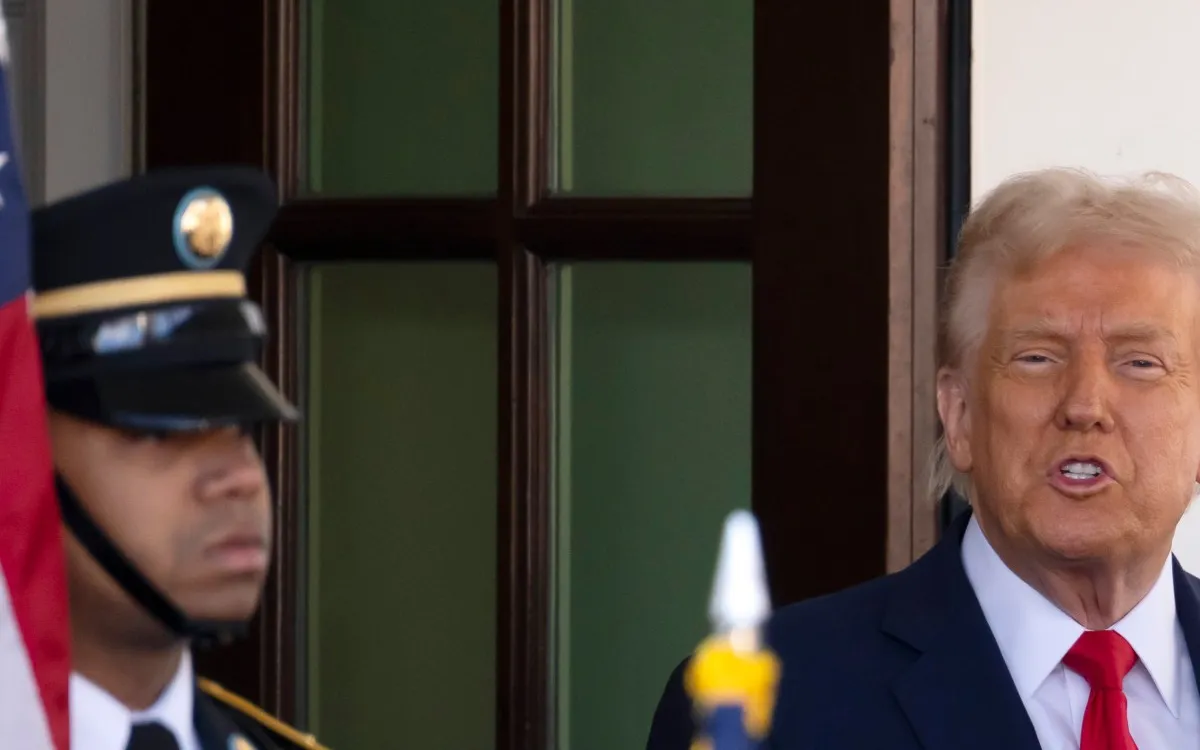
In a significant escalation of tensions between the United States and Ukraine, President Donald Trump has announced a pause in military aid to Ukraine. This decision comes amid a growing rift between Trump and Ukrainian President Volodymyr Zelenskyy. Various US media outlets reported on Monday that Trump intends to pause all military assistance until Kyiv demonstrates a commitment to what he considers good-faith negotiations for peace.
A White House official, speaking anonymously, emphasized that the president is focused on achieving peace, stating, "We need our partners to be committed to that goal as well." This official elaborated that the administration is pausing and reviewing military aid to ensure it contributes to resolving the ongoing conflict.
The announcement came just hours after Trump publicly criticized Zelenskyy for allegedly not wanting peace as long as he continues to receive support from the United States. This exchange escalated into a dramatic public confrontation between the two leaders during a recent meeting at the White House.
The decision to halt the transfer of hundreds of millions of dollars in arms and ammunition is expected to significantly impact Ukraine's ability to defend itself against Russia's ongoing invasion. Despite the lack of new military aid approvals from Congress, former President Joe Biden had previously authorized ongoing support that was projected to last for several years.
As of now, the US has allocated approximately $182.8 billion in response to Russia's full-scale invasion of Ukraine in 2022, as reported by the US Department of Defense. However, this figure encompasses broader spending on security, including military training in Europe. Prior to Trump's order, the US was set to supply monthly military deliveries worth $920 million this year, a significant increase from $500 million in 2024, according to analyses from the Center for Strategic and International Studies (CSIS).
In a recent interview with NBC’s Meet the Press, Zelenskyy expressed grave concerns about Ukraine's ability to survive without US support, stating, “We would have a low chance to survive.” Mark Cancian, a former US Marine Corps colonel and senior adviser with CSIS, warned that without US military aid, Ukraine's forces might gradually lose their combat capabilities, predicting that they could hold out for only two to four months before facing significant challenges.
The deterioration of US-Ukraine relations has intensified following Trump's comments regarding Zelenskyy's assertion that the end of the war is still "very, very far away." Trump remarked that Zelenskyy "better not be right," insisting that the conflict should come to an end quickly. He further stated, “If somebody doesn’t want to make a deal, I think that person won’t be around very long.”
In response to Trump's criticism, Zelenskyy maintained a diplomatic tone, emphasizing the importance of cooperation with international partners, including the US and European allies, to achieve a swift end to the war. “We need real peace,” he stated, highlighting the devastating impact of the war on Ukrainian cities and the loss of life.
The pause in military aid has sparked widespread condemnation from Democratic lawmakers and advocates of Ukraine. Representative Pramila Jayapal described the suspension as a "shameful day in American history," asserting that Trump is aligning himself with Russia and dictators rather than supporting democracy.
Former US Ambassador to Russia Michael McFaul labeled the move as "tragic," criticizing Trump's approach of offering support to autocratic regimes while pulling back from democratic allies. He remarked, “This is not strength. This is weakness.”
Trump's decision adds new urgency to ongoing European efforts to support Ukraine and seek a resolution to the conflict. Countries like the UK and France are exploring proposals for a peace deal following the recent fallout between Trump and Zelenskyy. A spokesperson for UK Prime Minister Keir Starmer indicated that various options are being considered to provide assistance.
Moreover, Cancian highlighted that filling the gap left by Trump’s pause in military aid would necessitate a "substantially increased commitment from Europe." However, he cautioned that weapons and military equipment do not become available overnight, making it challenging for Europe to immediately compensate for the pause in US aid.